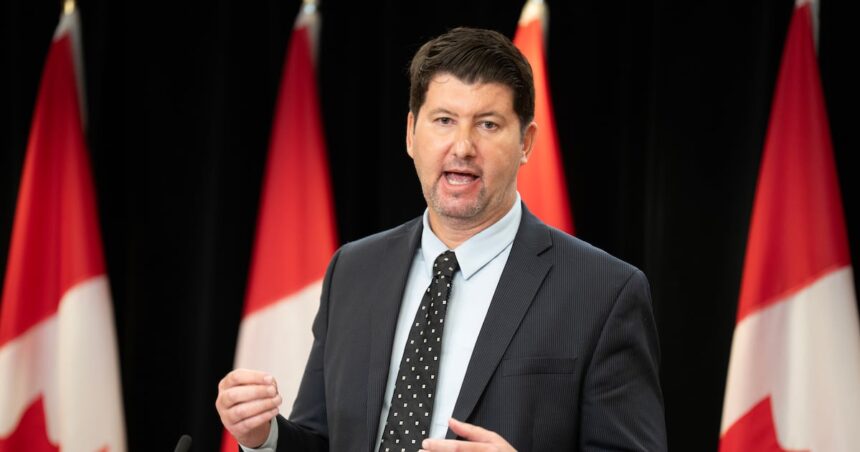Article – I’ve spent the past week talking with small business owners across Ottawa—the kind who’ve given up bidding on federal contracts altogether. “It’s a maze designed for insiders,” Sarah Johnston told me from her cybersecurity firm’s modest office in Kanata. After three failed attempts to navigate the procurement process, she’s focused entirely on private sector clients.
Johnston isn’t alone. The federal procurement system that distributes roughly $22 billion annually has become so convoluted that even the government’s own watchdog is sounding alarm bells.
In a scathing report released yesterday, Federal Procurement Ombudsman Alexander Jeglic called for a complete overhaul of the system, describing it as “unnecessarily complex” and “creating barriers” particularly for small and medium-sized businesses.
“The current procurement framework has evolved into a patchwork of policies, guidelines and processes that have become challenging to navigate,” Jeglic wrote in the 87-page report that followed an 18-month review of federal procurement practices.
What makes this critique particularly potent is that it comes from within. Jeglic has spent years in this role, and his office receives hundreds of complaints annually from frustrated businesses across Canada.
The problems run deeper than mere red tape. According to the report, the system has developed significant structural flaws that favor established contractors with dedicated bid teams—effectively shutting out innovative smaller companies and new market entrants.
During a tour of manufacturing facilities in southern Ontario last month, I met with Franco Debenedetti, whose precision parts company has stopped pursuing federal work despite having unique capabilities. “We spent $28,000 preparing a bid package last year only to get disqualified over a minor technicality,” he explained. “We can’t afford that kind of resource drain.”
The Canadian Federation of Independent Business (CFIB) has long advocated for procurement reform. Their latest member survey shows 68% of small business owners find the federal procurement process “extremely difficult” to navigate, with 41% saying they’ve abandoned government opportunities entirely.
“This isn’t just about fairness,” says Corinne Pohlmann, CFIB’s Senior Vice-President of National Affairs. “When small businesses can’t participate in government contracts, taxpayers lose out on innovation and often pay higher prices.”
Minister of Public Services and Procurement Jean-Yves Duclos acknowledged the report’s findings, calling them “concerning but not surprising.” In a statement issued through his office, Duclos committed to “thoroughly review the recommendations” while noting that some reforms are already underway.
Those reforms can’t come soon enough for Indigenous businesses, which face additional hurdles despite set-asides designed to support them. During consultations in Winnipeg, Jeglic heard that Indigenous procurement targets aren’t translating to meaningful participation.
“The system requires sophisticated proposal writing skills and prior experience with government contracts—creating a catch-22 for businesses trying to enter the market,” says Nicole Wilson, Director of the Indigenous Business Association of Manitoba. “Many of our members have the capacity to deliver but can’t get past the paperwork barriers.”
The report makes 23 recommendations, including standardizing requirements across departments, simplifying security clearance processes, and creating a centralized procurement portal with plain-language guidance.
Perhaps most significantly, Jeglic calls for cultural change within government procurement offices. “Risk aversion and process adherence have overtaken the pursuit of value and innovation,” he writes.
Treasury Board President Anita Anand indicated her department will work with Public Services to implement reforms, noting that “efficient procurement practices are essential to responsible government spending.”
The political stakes are considerable. With federal spending under intense scrutiny and an election looming next year, procurement reform represents both a challenge and opportunity for the government to demonstrate fiscal responsibility.
Conservative procurement critic Kelly Block was quick to criticize the government’s track record. “For years, small businesses have been telling us the system is broken. This report confirms what we’ve been saying all along—this government has created a procurement process that wastes money and blocks innovation.”
NDP leader Jagmeet Singh focused on the report’s findings regarding supplier diversity. “When small businesses and underrepresented groups can’t access government contracts, we’re reinforcing economic inequality,” he said during a campaign stop in Vancouver.
Beyond the political theater, the economic implications are substantial. A more accessible procurement system could potentially save billions while distributing economic benefits more broadly across Canadian communities.
Back in Ottawa, I sat down with former public servant Marc Leblanc, who spent 12 years in federal procurement before leaving to start a consulting practice helping businesses navigate the system. “The irony is I make a living because the process is so complicated,” he admitted. “That should tell you something’s fundamentally wrong.”
As debate over the report continues, one thing is clear: the status quo isn’t working for Canadian businesses or taxpayers. The question is whether meaningful reform will happen before more innovative companies like Johnston’s give up on serving their own government.
For the thousands of small business owners watching this unfold, the stakes couldn’t be higher. As Johnston put it before I left her office: “We’re not asking for special treatment—just a fair shot at competing.”






